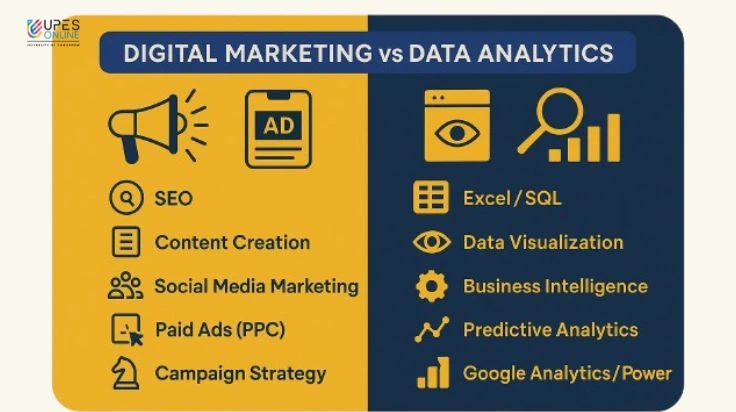Advantages of Power Management Industry in India
Energy is one of the most essential aspects of infrastructure for a country’s economic growth and welfare. The availability and development of suitable electrical infrastructure is crucial for India’s economy to continue to flourish.
India’s Oil and Gas industry is one of the most diversified in the world. The country’s electricity consumption has risen significantly and is expected to continue to rise in the coming years., accounting for more than a quarter of the global total of 1.4 billion people without power. Pursuing an MBA in Power Management in India will help to meet the country’s growing need for power and energy.
The Indian government’s goal on achieving ‘Power for All’ has expedited capacity expansion in the country. At the same time, both the market and supply sides are becoming more competitive. Providing reliable, affordable, secure, and sustainable energy to India’s rising economy necessitates a variety of alternatives, including optimising domestic production, diversifying the fuel mix and source of supply, and preserving sufficient reserves, if necessary. In the energy industry, this will assure price stability as well as supply security. This makes up for all the more reason to enroll in an MBA in Power Management and be a part of this growing industry.
Advantages
- Growing Demand: India is the third-largest producer and second-largest consumer of electricity worldwide, with an installed power capacity of 395.07 GW, as of January 2022. The growing population along with increasing electrification and per-capita usage will provide further impetus. Power consumption is estimated to reach 1,894.7 TWh in 2022.
- Attractive Opportunities: Under the Union Budget 2022-23, the government announced the issuance of sovereign green bonds, as well as conferring infrastructure status to energy storage systems, including grid-scale battery systems. In the same budget, Rs. 19,500 crore (US$ 2.57 billion) was allocated for a PLI scheme to boost manufacturing of high-efficiency solar modules.
- Policy Support: 100% FDI allowed in the power sector has boosted FDI inflow in this sector. Schemes such as Deen Dayal Upadhyay Gram Jyoti Yojana (DDUGJY) and Integrated Power Development Scheme (IPDS) are expected to augment electrification across the country.
- Higher Investments: As per the National Infrastructure Pipeline 2019-25, energy sector projects accounted for the highest share (24%) out of the total expected capital expenditure of Rs. 111 lakh crore (US$ 1.4 trillion). Total FDI inflow in the power sector reached US$ 15.84 billion between April 2000 and December 2021.

Challenges
- Low Access to Modern Energy: With a predominantly rural population and little access to modern energy services, traditional fuels are heavily relied upon. In rural locations, limited access to modern energy sources reduces productivity, notably prospects for non-farm jobs for agricultural workers.
- Heavy Dependence on Fossil Fuel: India’s electricity sector continues to rely significantly on fossil fuels. In absolute terms, it has a big hydropower potential, although it is minor in comparison to the country’s energy needs
- Reliance on Government: Restructured entities have low accountability, operational efficiency, and customer service orientation. This lack of financial stability and reliance on state governments discourages private investment and limits the sector’s ability to invest in new generation capacity, network maintenance, and expansion.
UPES Online Admission Enquiry
Recommended Courses




Latest Blogs

Digital Marketing vs Data Analytics: Which Career Should You Choose?
Battle of skills: Digital Marketing vs Data Analytics—compare 2025 salaries, skills & job roles. Expert tips to choose your future career path!
Read MoreJun 15, 2025 I 12 mins
Why Should I Choose UPES Online? 10 Reasons Why
Explore why UPES Online stands out in online education. Learn about flexible learning, UGC-approved degrees, expert faculty & credible online programs. Enroll now!
Read MoreAug 21, 2025 I 5 min
Can Distance Learning Fully Replace Traditional MBA Education? Challenges & Limitations
Find out if distance learning can truly replace a traditional MBA. Learn key challenges, limitations, expert opinion & insights.
Read MoreSep 2, 2025 I 4 mins
Online MBA Capstone Projects and the Importance They Hold
Know the importance of online MBA capstone projects. Learn how they build real-world skills, boost career opportunities, & add industry value.
Read MoreSep 7, 2025 I 5 mins
UPES Online MBA vs Other Top Universities: Why Students Prefer UPES
Compare UPES Online MBA with other top universities. Know why students prefer UPES online over others. Check fee, flexibility, faculty, ROI, & career scope.
Read MoreOct 1, 2025 I 7 mins










